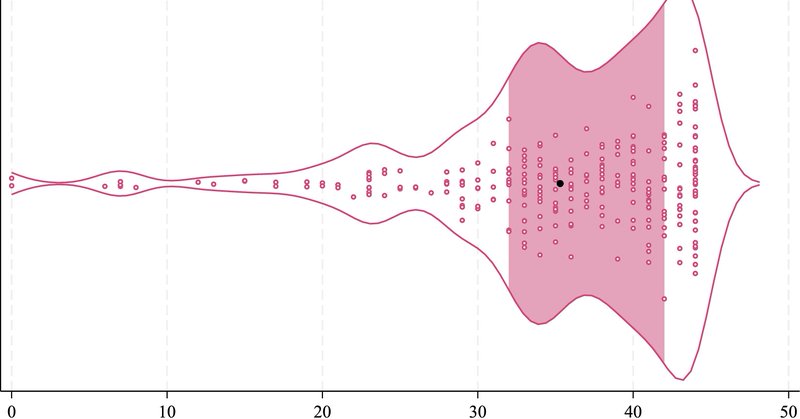
Jessica Sperber (she/hers)
@Jess_Sperber
Followers
178
Following
134
Media
2
Statuses
49
@NICHD NRSA F31 Predoctoral Candidate in Dev Pysch @TeachersCollege @Columbia | Stress, 🧠 development, epigenetics, ECE, early intervention
New York, NY
Joined March 2022
Proud to share that I am officially an NIH-funded PI! My F31 predoctoral application has been funded by NICHD. My dissertation will examine the associations b/w maternal stress, epigenetics, and development over the first few years of life.
7
3
65
RT @EmmaRoseHart: Little is known, although much is theorized, about the long-run benefits of boosting children's social-emotional skills.….
0
42
0
RT @EmmaRoseHart: I am excited to share our new paper on the effects of Baby’s First Years unconditional cash transfers on maternal reports….
0
29
0
RT @DrDanaSuskind: Important insight in @Nature on how helpful mothers from low-income households find various individual and structural pa….
nature.com
Scientific Reports - Mothers with low incomes view both individual and structural interventions as potentially helpful for supporting early child development
0
11
0
RT @EmmaRoseHart: Would Dev Psych be better off focusing on interventions that target structures & resources instead of parents? We asked 2….
0
39
0
RT @shannonmdailey: Does a monthly, unconditional cash transfer given to mothers residing in poverty for 1 year have a causal impact on chi….
srcd.onlinelibrary.wiley.com
Research on early language input and socioeconomic status typically relies on correlations in small convenience samples. Using data from Baby's First Years, this paper assesses the causal impact of...
0
6
0
RT @AllieDWSullivan: The infamous Marshmallow Test study continues to be debunked. Marshmallow-indicated delay of gratification at age 4.5….
0
12
0
Overall, we find little evidence of a causal link b/w delay of gratification and broad measures of adult success. Our hypotheses & analyses were preregistered, and our analytic code is publicly available at
osf.io
This page provides the preregistration and analytic code for the paper "Delay of gratification and adult outcomes: The Marshmallow test does not reliably predict adult functioning". We also report...
0
0
4
TL;DR- delay of gratification is likely not a helpful skill to target to reduce disparities. This aligns w/ the fadeout observed on other self-reg skills targeted in ECE interventions. See a fabulous meta-analysis by @EmmaRoseHart
edworkingpapers.com
Researchers and policymakers aspire for educational interventions to change children’s long-run developmental trajectories. However, intervention impacts on cognitive and achievement measures...
1
1
6
Extending an analysis by @tw_watts, we found few bivariate correlations between the Marshmallow Test and adult functioning (2 out of 9 outcomes). However, these all become NS with adjustments for the child’s demographics and early home environment.
1
0
3
🚨 New paper out in Child Development! “Delay of gratification and adult outcomes: The marshmallow test does not reliably predict adult functioning” 🧵 .
srcd.onlinelibrary.wiley.com
This study extends the analytic approach conducted by Watts et al. (2018) to examine the long-term predictive validity of delay of gratification. Participants (n = 702; 83% White, 46% male) complet...
9
22
95
RT @STRscience: Thrilled to share my *first* senior-authored manuscript, expertly led by Eryn Adams and w/Chanel, Melina, @mscott6399, @Kim….
0
27
0
RT @Infantstudies: Have you read this from 2023? Cautious optimism for pandemic babies: @Jess_Sperber & @KimberlyGNoble found amt of time a….
onlinelibrary.wiley.com
We investigated how exogenous variation in exposure to the COVID-19 pandemic during the first year of life is related to infant development, maternal mental health, and perceived stress. Ninety-thr...
0
5
0
RT @BiolPsychology: Online in @biolpsychology "Associations between maternal stress and infant resting brain activity among families residi….
0
3
0
RT @EmmaRoseHart: Thank you so much, @PMorrisPerez!!. Thanks to @tw_watts & @henrikdz for a great session on new work interrogating whether….
0
2
0





